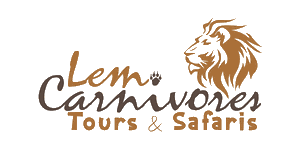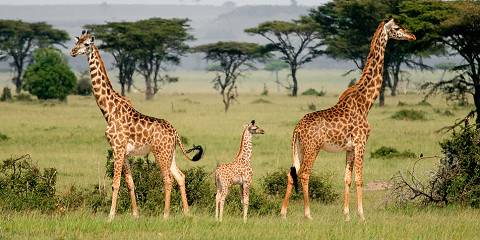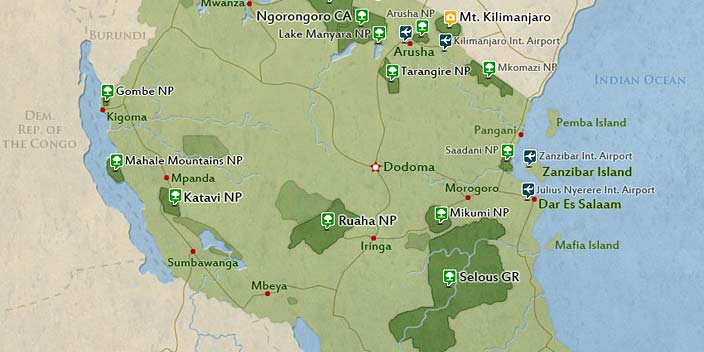
Arrival
Arrival

Day 1
Arusha to Tarangire National Park
Arusha to Tarangire National Park
We'll pick you from your hotel and following a 2-3 hour drive, you will arrive at the Tarangire National Park. In this region in Tanzania, Hemmingway often went on big game hunting safaris. After the formation of the national parks in 1970, they turned the seasonal marshes and the endless savannah that one sees today into profitable hunting grounds. The Tarangire National Park has the highest density of elephants in North Tanzania and you can view these animals all year round in which the herds often can reach an impressive number of 300 animals. The Tarangire River has water all year round and during the dry season, between July and October, many animals from the surrounding areas come to the river for drinking. If you visit the park during the dry season, you will witness an unforgettable natural wonder as you can observe wonderful creatures such as lions, giraffes, and wildebeest. After having a good game driving from Tarangire, you will go to the camp for your overnight and dinner.
- Main Destination:
- Tarangire National Park
- Accommodation:
- Budget camping
- Meals & Drinks:

Day 2
Lake Manyara National Park
Lake Manyara National Park
In the early morning, we will pick you up from your camp and drive you to Lake Manyara National Park. The park encompasses the northwest bank and part of the alkaline Lake Manyara which itself rests in the Great Rift Valley. The park is perhaps best known for its flamingos, pelicans, and cormorants but it is also the home for a few hundred other species of birds; it is therefore a paradise for ornithologists. Next to a great variety of birds, the "Big Game" can also be seen in which elephants can often be spotted in the wooded regions along with the tree-climbing lions. Indeed, it was thought for a long time that this spot is the only place where lions can be found with this atypical behaviour of climbing trees. Baboons and guenons are also found in the forested areas. In the more open spaces, giraffes nibble at the fresh leaves while the various types of antelopes common to the region browse for tasty shoots. After having game drives you will get back to the same campsite.
- Main Destination:
- Lake Manyara National Park
- Accommodation:
- Budget camping
- Meals & Drinks:

Day 3
Serengeti National Park
Serengeti National Park
Covering an area of 14,763 sq km, Serengeti National Park is the largest park in Tanzania. The park is located some 320 km to the northwest of Arusha, lying in a high plateau between the Ngorongoro Highlands and the Kenya/Tanzania border, and extending almost to Lake Victoria to the west. Aptly named “endless plains” by the Maasai people, you immediately experience this vastness as you enter the southeastern plains of the park from Ngorongoro. Declared a protected area in 1921 and gazetted as a national park in 1951, Serengeti is the oldest park in Tanzania. It is undoubtedly one of the most famous wildlife sanctuaries in the world. The principal features of the Serengeti are the short and long grass plains in the south and east, the acacia Savannah, the hilly and densely wooded areas in the north and the extensive woodland in the west. Go for an afternoon game drive on arrival in the Serengeti, which we are calling a game drive en route, until evening when you go to the campsite.
- Main Destination:
- Serengeti National Park
- Accommodation:
- Budget camping
- Meals & Drinks:

Day 4
Ngorongoro Crater
Ngorongoro Crater
The Ngorongoro Crater is the biggest unbroken caldera on the globe and has been described among the natural great wonders on the planet. On the other hand, two-thirds of Lake Manyara National Park is covered by water and the other third is dry land that supports a great number of wildlife within that small expanse. In the morning, move down into the 2,000 ft giant caldera. This amazing natural amphitheatre houses the biggest number of animals in Africa. There are prides of lions, black rhinos, as well as elephants sharing this land with the local Maasai tribesmen. Because the grass is short, game viewing is very easy and animals can be approached very closely. We will spend the morning on the crater floor observing the wildlife.
- Main Destination:
- Ngorongoro Crater
- Accommodation:
- Budget camping
- Meals & Drinks:

Day 5
End of Tour
End of Tour
Today we will return you to the Arusha city centre to the hotel or the airport (for the airport drop off, there will be an extra cost) according to your request where you choose to be dropped off.
- Main Destination:
- Arusha (City)
- Accommodation:
- No accommodation (End of tour)
- Meals & Drinks:



















